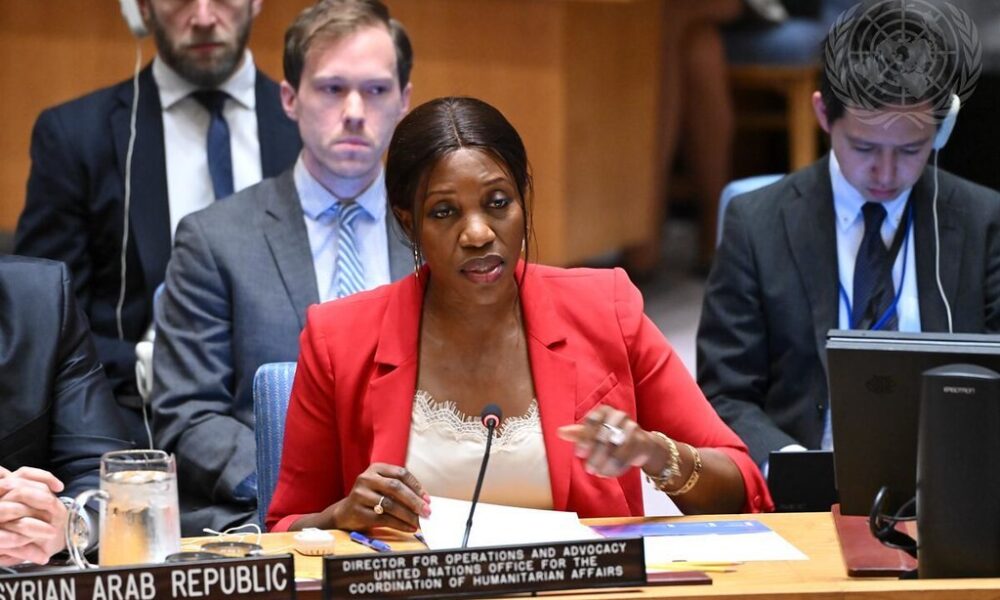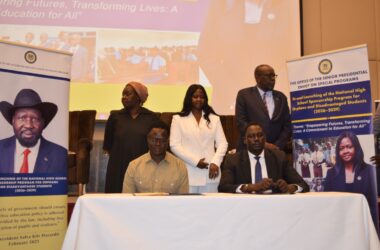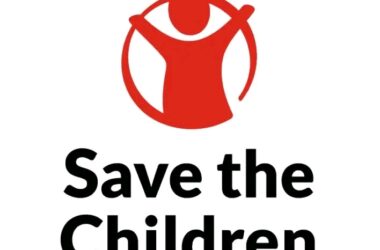By Philip Buda Ladu
South Sudan is teetering on the brink of a “humanitarian nightmare” as escalating violence compounds existing crises, a top UN official warned the Security Council on Wednesday.
Edem Wosornu, Director of Operations and Advocacy for the UN Office for the Coordination of Humanitarian Affairs (OCHA), delivered a stark briefing on behalf of Under-Secretary-General for Humanitarian Affairs Tom Fletcher, painting a grim picture of a rapidly deteriorating situation.
In the statement seen by this outlet, Wosornu highlighted the dramatic escalation of violence in Upper Nile State since mid-February, which has triggered nationwide tensions and resulted in armed clashes and aerial bombardments.
This recent surge has displaced an estimated 130,000 people, with many thousands reportedly crossing into Ethiopia.
She stated that the violence has also had a devastating impact on civilians, with dozens of casualties reported and an increased risk of gender-based violence, including sexual violence and exploitation, for women and girls.
The humanitarian impact of the fighting is severe. Six health facilities have been forced to shut down due to attacks and destruction, including Ulang Hospital, a crucial lifeline for 174,000 people, which suspended services following extensive looting earlier this week.
Wosornu said tragically, four humanitarian workers have been killed this year alone, bringing the total to five.
Access to those in need remains severely restricted, and critical medical supplies are dwindling amidst an ongoing cholera outbreak. Even in the capital, Juba, approximately 9,600 people have sought refuge in displacement camps.
Beyond the immediate violence, Wosornu emphasized the compounding effects of pre-existing crises. She noted that 9.3 million South Sudanese, representing three-quarters of the population, require some form of humanitarian assistance, with children making up half of this number.
The pre-harvest lean season is beginning, and nearly 7.7 million people are now acutely hungry, a significant increase from 7.1 million during the same period last year. Market disruptions, high inflation at 180 percent, and reduced purchasing power are further limiting access to food.
Alarmingly, assessments project that 650,000 children under the age of five are at risk of severe acute malnutrition this year.
The ongoing conflict in neighboring Sudan continues to exacerbate the crisis in South Sudan.
Since the conflict erupted in April 2023, over 1.1 million returnees and refugees have crossed the border, placing immense pressure on local services and fragile infrastructure, particularly in border areas.
According to OCHA the influx is also raising concerns about growing ethnic divisions and tensions with overstretched host communities, potentially fueling inter-communal violence.
Furthermore, the Sudanese conflict is contributing to South Sudan’s economic woes by impacting trade and reducing state oil revenues.
The cholera outbreak, which originated in Renk County near the Sudanese border, has spread, infecting 49,000 people and claiming over 900 lives, making it the worst in the nation’s history. While vaccination campaigns have reached 5.2 million people, the upcoming rainy season is expected to heighten the risks.
Additionally, the climate crisis continues to drive displacement, disrupt food production, and escalate competition for scarce resources, contributing to localized violence.
Despite these immense challenges, Wosornu stated that the humanitarian community has reached approximately 1.3 million people with some form of assistance by the end of February.
However, she stressed that unprecedented funding cuts are severely undermining their ability to respond effectively. The 2025 Humanitarian Needs and Response Plan requires $1.7 billion to support close to 5.4 million people.
Wosornu concluded with three urgent appeals to the Security Council: immediate and sustained action to prevent further deterioration, including a cessation of hostilities; a recommitment by all parties to adhere to international humanitarian law and protect civilians and humanitarian workers; and immediate and flexible funding to scale up the humanitarian response.
“The people of South Sudan are counting on your support. Lives are at stake,” she emphasized at the UNSC meeting.




